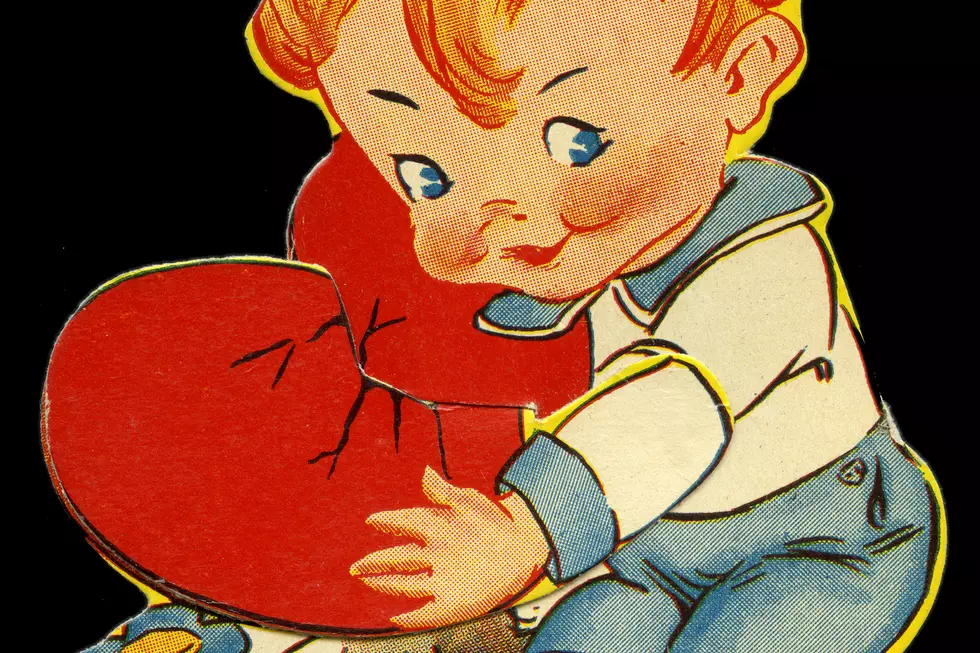Sounds Apart: Future and Jeremih
The musical landscape periodically rearranges itself around bursts of minimalism that privilege rhythm: funk in the late ‘60s, or the first burgeoning of hip-hop in the late ‘80s.
Last year, the burst came courtesy of Kanye West, who reveled in brash, volatile sound, and the West Coast rap producer DJ Mustard, who honed an increasingly successful form of propulsion using as little melodic information as possible. Two of the most exciting songs of 2014 take these advances as their starting point, but they push past the now and onto the next.
'Move That Dope,' from the rapper Future and the producer Mike Will Made It -- you can see the teaser trailer above for the video above -- and 'No More,' the work of the singer Jeremih and a producer named Shlohmo, show the exciting possibilities of the rugged, spare approach.
The templates constructed by West and Mustard are versatile -- making room for rapping, singing, autotune warbling, dancehall delivery, samples and more -- but they share a bare, explosive sensibility. In this environment, words can feel too expressive, or at least not expressive in the right way. This leads to the shrill screams issued by West on 'Yeezus,' or the volleys of shouts that act like a second rhythm in DJ Mustard-produced work.
The new songs from Future and Jeremih find power and mystique by harnessing strange, foreign, sometimes downright unpleasant noises. Everything seems warped or changed by technology, and all extraneous elements are stripped away. Importantly, in both songs, language begins to break down, another signifier that this music seems to exist in a world of its own, apart from the past.
In both songs, language begins to break down ...
'Move That Dope' came first. It’s a forceful tune with few precedents, though touches of West’s 'Clique,' from the end of 2012, make their way into the beat, and whispers of “push it,” appearing throughout the song, evoke Salt-n-Peppa’s 'Push It,' which came out in 1987. The presence of Pharrell, one of several rappers who show up to grapple with the beat, drives home the modernity of Future and Mike Will’s sound. Pharrell has been stuck in a (re)cycle lately, looping varieties of funk from the late ‘70s -- Marvin Gaye, Michael Jackson-- for himself and the artists he writes songs for. But 'Move That Dope,' menacing and restless, lives far from Pharrell’s golden ‘70s, or other decades.
It’s propelled by a deep, growly sound of unknown origin, almost didgeridoo-like. This blurps and spurts, functioning as both the primary melody and the central rhythm. Other sounds appear: odd, syncopated clinks, a steady stream of high percussive clatters and a synthesizer that echoes the main line, metallic and degraded. Everything shudders and smears forward. The hook is rough and short, only six syllables, with the last three, “move that dope,” repeated over and over throughout.
Like in any mantra, the words themselves lose meaning: repetition is key. “Move that dope” starts to sound like “moo-tha-do;” it also begins to mimic the gruff blurts from the main part of the beat. The language reaches towards pure sound. It’s open to interpretations, no longer associated with any one meaning, place or time.
There’s also a grating, nasty sound starting 'No More,' a collaboration between the R&B singer Jeremih and the L.A. producer Shlohmo. Jeremih’s self-titled debut album, from 2009, was cutting-edge major-label R&B that landed a big hit, 'Birthday Sex,' at No. 4 on the pop charts. But since then, Jeremih’s been mostly quiet and largely unable to build on that success. He put out one more album on Def Jam, and more recently released a mixtape with production from Mike Will.
For an artist who seems to be struggling to release albums within the label system, you might expect a new Jeremih release to lean conservative -- aiming to ride a trend and hit easy pleasure centers, maybe by getting back into the studio with Mike Will, who has a proven track record. But instead, Jeremih takes a more risky path, teaming up with Shlohmo, a producer without much of a pop or R&B resume. (They put out one song last year, 'Bo Peep.')
'No More' begins with a long, scraping and probing line of sound that threatens to wash away and overwhelm Jeremih’s layered, honeyed delivery. Flat pools of drums and a needle-pointed series of sharp, harsh blips, approximating a Geiger counter running haywire near a nuclear plant, provide the momentum.
The singer drifts over it all, unperturbed, draping thick puddles of his own lusty vocals around all the keening, thin sounds.
Comparisons might be drawn to the early releases from the Weeknd (Abel Tesfaye), but the beat here is both weirder and more furious, and Jeremih is not concerned with Tesfaye’s project of exploring different iterations of numbness and unfeeling. (Plus, Jeremih is not an industry outsider.)
Like 'Move That Dope,' 'No More' creates a space where words start to lose significance. Jeremih tries a variety of voices in an attempt to coexist with the shrill, strafing noise, but his croons, shouts and sing-raps have no effect. So the song sidetracks into a slow, spare passage with deep, distorted vocals, the kind that became popular in southern rap. When the beat comes back in different form, it’s slower, and Jeremih spends about a minute groaning wordlessly. He could be pleased or frustrated, competing against or conspiring with those dark, technologically-produced clouds of voice.
If there’s a hook to 'No More,' it’s the rushing repetition of the phrase, “I don’t wanna wait, I don’t wanna wait, no more.” Jeremih’s intensely invested in his immediate present. So is 'Move That Dope,' which pushes impatient forward movement with “moo tha do.” This is music with no interest in anachronisms. Even words seem old fashioned.
More From Diffuser.fm









